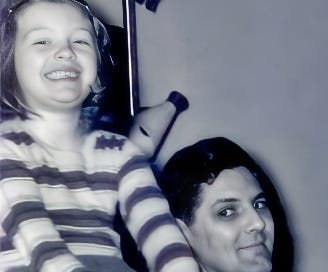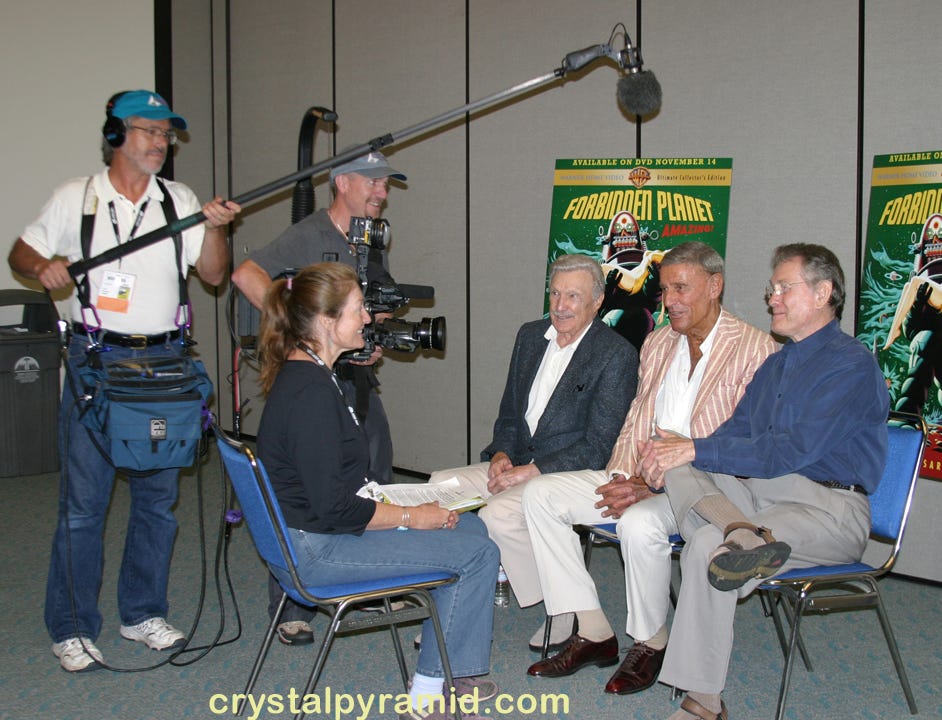Have you ever told a story to someone, only to watch their gaze drift to their phone, or worse, their eyes glaze over like you were speaking through static? Welcome to the age of distraction, where listening has become a lost art.
I remember when people used to lean in. I mean really lean in, with eyebrows raised, shoulders squared, and faces open to the unfolding tale. Conversations were full-bodied experiences. You'd nod, laugh, interrupt with a gasp or a story of your own. There was a rhythm, a dance. We passed ideas like batons in a relay. I think back to camp-out trips, sitting around the fire under a dome of stars, S’more in hand, each person taking a turn to share a story. There was an unspoken rule that everyone got their moment, their spotlight in the flickering firelight. It was warm, communal, and deeply human.
Now we mutter, “Uh-huh,” while scrolling through headlines. We nod absentmindedly while composing texts. We pretend we’ve heard, when in truth, we only caught a syllable or two before our minds wandered away like errant balloons.
What Happened?
I blame speed. Everything has been sped up. Information, relationships, entertainment. The notion of sitting still and receiving someone else’s words without the compulsion to chime in, solve their problem, or scroll through our feeds while they speak feels quaint, even indulgent. But when we abandon listening, we lose more than just manners. We lose empathy. We lose connection.
Listening is not passive. It's active, intentional, and at its best, sacred. It requires stillness, curiosity, and patience. When you really listen to someone, you’re giving them a piece of your life’s most precious resource: your time. Your full presence.
Why Don’t We Listen?
Sometimes, we’re just too tired. Sometimes, we think we already know what the other person’s going to say. Or we’re preoccupied with our own stories, waiting for a pause to interject them. Then there's the ego, so hungry to be heard it forgets to hear.
There’s also fear. When we truly listen, we might have to confront something we don’t want to know. Someone’s grief, anger, disappointment, or even their love. Listening makes us vulnerable. It opens us.
The Gift of Being Heard
Think back to a time when someone really listened to you. Maybe it was a friend after a heartbreak, a mentor who saw your potential, or a stranger on a park bench who asked just the right question. Didn’t that moment feel like a balm? Like, finally, you weren’t invisible?
Some of the first questions I ever asked were of my father. I remember looking up at him and wondering aloud, “Why is the sky blue?” and “Which car is the last one on the highway at night and the first in the morning?” Then I’d wait. Not impatiently, but with wonder. I wanted to know what he thought. I was learning, even then, how to ask, how to pause, and how to listen.
I’ve been a video producer for over four decades. In that time, I’ve honed the skill of asking questions with pure curiosity, not with an agenda or a script to follow, but with the sincere desire to hear what the other person has to say. One of my favorite memories was sitting with an elderly war veteran who recounted his service through tears and grit. He had been on the USS Arizona when Pearl Harbor was bombed by the Japanese on December 7, 1941. He spoke softly at first, but as he opened up, his voice gained strength. I didn’t interrupt. I didn’t relate with a story of my own. I just listened. He later told me it was the first time anyone had heard his full story. Not just the facts, but the feelings. He passed away not long after. I carry that conversation in my heart like a pearl.
Another standout moment came when I had the opportunity to interview three members of the original cast of The Forbidden Planet: Warren Stevens, Richard Anderson, and Earl Holliman. These were legendary actors with decades of experience, and I expected to work hard to draw them out. But I asked only a few well-considered questions, then simply sat back and listened. What followed was a rich, animated, and generous conversation between friends who clearly respected each other and loved the craft. They told their stories, teased one another, and invited me into their world. All I had to do was make space for it.
Listening as a Revolutionary Act
In today’s world, listening is almost radical. It requires effort and surrender. It means resisting the urge to fix, judge, or distract. It means being fully present for someone else’s humanity.
What if we treated listening as a daily practice, like meditation or yoga? What if we approached each conversation as a chance to witness someone, rather than perform ourselves?
How to Reclaim It
Here are a few simple ways I’ve found to re-engage the art of listening:
Put the phone away. Not face-down on the table. Away.
Pause before responding. Sometimes silence is where the truth lands.
Ask questions, not just follow-ups. Real questions that deepen the conversation.
Don’t rehearse your answer while the other person is speaking. That’s just waiting your turn, not listening.
Listen to tone, not just words. The truth often trembles underneath.
Listening won’t solve every problem. But it will remind the people in your life that they matter. It will deepen your relationships. It might even save one.
And maybe, just maybe, in a world that won’t stop talking, your quiet attention will be the loudest, most healing sound they need to hear.
– Patty Mooney
Still listening.






